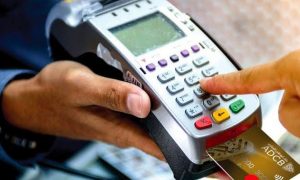CBN orders geo-tagging of all PoS terminals in Nigeria

The Central Bank of Nigeria (CBN) has directed that all Point of Sale (PoS) terminals in the country be geo-tagged within 60 days as part of measures to curb fraud and strengthen oversight of digital payments.
“This initiative is designed to ensure that all PoS terminals are traceable and that transactions are secure. Terminals operating outside their registered location will be flagged, and non-compliant devices will be deactivated,” the CBN said in a statement dated August 26, 2025.
The directive requires all existing and newly deployed PoS devices to have native geolocation features and double-frequency GPS receivers for accurate tracking. Terminals failing to comply with the October 20, 2025, deadline will no longer be allowed to operate.
The bank explained that the move will help eliminate “ghost” or cloned terminals and enable real-time monitoring of transactions.
Each PoS device must capture and transmit its location at the start of every transaction, with activity beyond a 10-meter radius of the registered merchant address automatically flagged.
Licensed operators, including major banks and fintech companies like Moniepoint, OPay, and PalmPay, are expected to register each terminal with a payment aggregator and provide precise merchant coordinates.
The CBN said the measure is part of a broader plan to modernise Nigeria’s payment system, improve consumer protection, and ensure that digital financial transactions are secure and fully traceable.
The CBN, however, cautioned the stakeholders that any PoS terminal operating outside its registered location would be deactivated, with Payment Terminal Service Providers (PTSPs) and mobile money companies held responsible for ensuring compliance across their networks.
The order comes amid the rapid expansion of the PoS industry, which by 2023 had developed to an estimated 1.5 million agents nationwide—about one for every 80 Nigerians.
Authorities alleged that the boom of the PoS has also opened loopholes for fraud, with some terminals linked to scams and even ransom payments.
